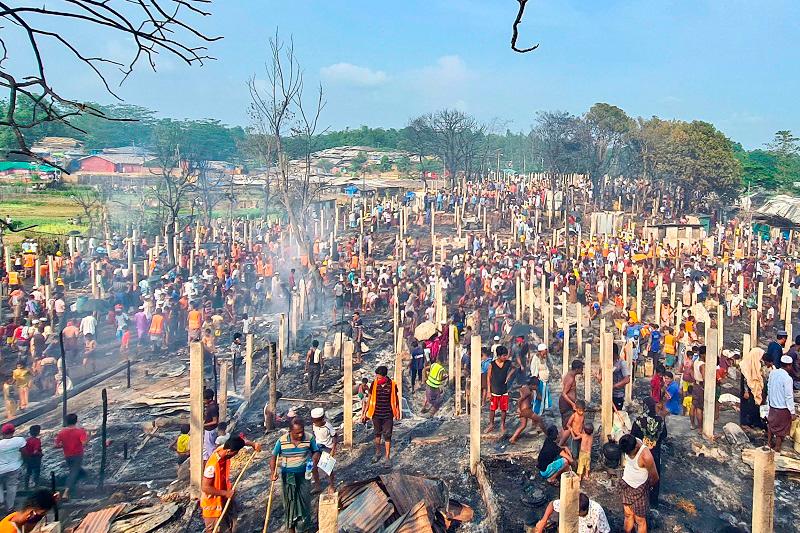DHAKA: Amid escalating conflict between the junta government and rebel Arakan Army in Myanmar, approximately 60,000 Rohingya entered Bangladesh in the last two months, Anadolu Agency quoted a Bangladeshi official on Sunday.
Bangladesh is currently hosting over 1.2 million Rohingya in its southeastern Cox’s Bazar district. Most of the Rohingya Muslims fled from Myanmar in August 2017 following a military crackdown.
The Rohingya infiltration has also been facilitated by corruption along the Bangladesh-Myanmar border as some individuals aiding the Rohingya crossing the border in exchange for money.
Md. Touhid Hossain, foreign affairs adviser, told reporters about his visit to Bangkok, where an informal consultation meeting was held on Thursday among six countries, including Laos, Thailand, India, China, Myanmar, and Bangladesh.
“Our position in principle is not to allow any more Rohingya to enter. However, sometimes the situation becomes such that we have nothing more to do. In such a situation, we allowed 60,000 Rohingya to enter. It’s not that we officially let them in, they entered through different routes,” Hossain explained in Dhaka.
However, he said he believed that there would not be another wave of influx of Rohingya. “But we have to make arrangements to stop that wave, along with the international community,” he added.
The meeting was held last Thursday under the chairmanship of Thai Foreign Minister Maris Sangiampongsa. Myanmar’s Deputy Prime Minister and Foreign Minister U Than Swe was also present at the meeting.
Neighbouring countries see no possibility of Myanmar returning to its previous state, Hossain added, noting that all participants in the meeting urged Myanmar to resolve its internal issues through dialogue with all parties.
The Arakan Army has gained control of more areas in Rakhine State along the Bangladesh border. However, Hossain stated that holding formal talks with those now in control of these areas in Myanmar is not feasible.
Citing the meeting with Swe, Hossain said: “I told him (Than Swe) that the Myanmar border is not under your control. The border has come under the control of non-state actors. As a state, we cannot get involved with non-state actors. So, they (Myanmar government) have to see in what way to solve the border and Rohingya problems.”









